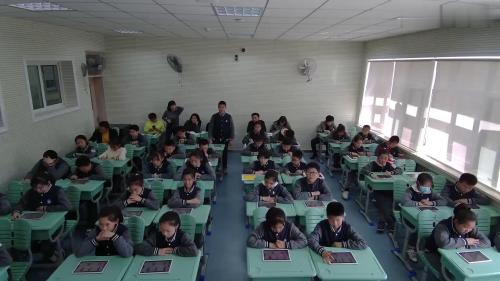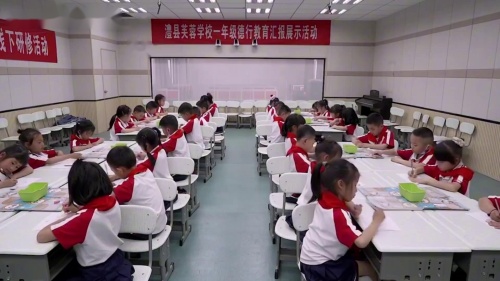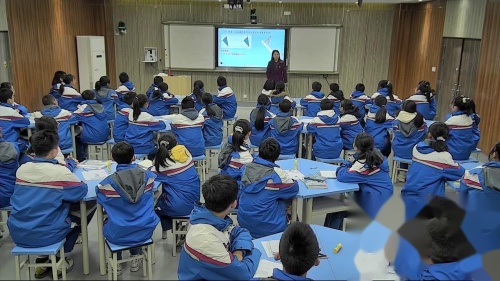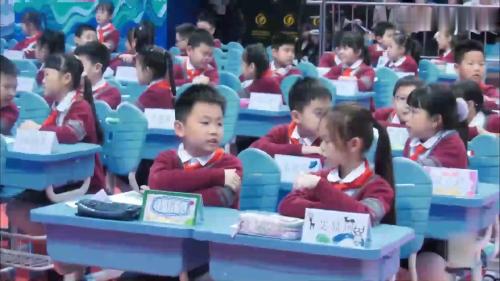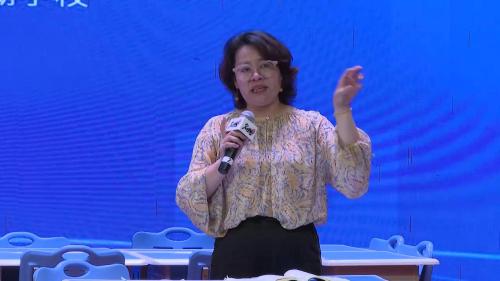动词,顾名思义表示动作,动态的一个个词,通常在一个句子里会包含主语,谓语,宾语。动词一般作为谓语,下面小编告诉你六年级英语动词用法,大家一起来看看吧!
六年级英语动词用法
英语中共有三种非限定动词,分别是:动词不定式(to do..),动名词(doing..),分词(doing ,done..)。
动词可分为三数:单词,短语动词或动词短语。
The English language contains mang phrasal verbs and verbal phrases.
contains是单字动词
Students should learn to look up new words in dictionaries.
look up是短语动作
The young ought to take care of the old.
take care of 是动词短语
五种形态:原形,第三人称单数形式,过去式,过去分词,现在分词,
系动词(联系动词),作为系动词有些不具词义,有些具有词义,但不能单独用作谓语,后面必须跟表语(补语),构成系表结构说明主语的状况,性质,特征情况
状态系动词:表示主语状态,只有be一词:
如:He is a teacher . is 与补足语一起说明主语的身份。
持续系动词用来表示主语继续或保持一种状况或态度,keep,remain ,stay .
如:He always kept silent at meeting
感官系动词,feel ,smell, sound , taste
如:This flower smells very sweet .
表像系动词,seem, appear ,look ..
如:He looks tired
最常用的助动词有:be ,have ,do, will,shall, should ,would.)协助主要动词构成谓语动词组的词,叫且动词。)被协助的动词称作主要动词,且动词自身没有词义,不可单独使用。He doesn't like English.
(doesn't 是助动词,无词义,like是主要动词,有词义)
When shall we see you next?( shall是助动词)
动词answer的用法与搭配归纳:
1. 用作动词,除表示“回答”“答复”外,还可表示“接(电话)”或对门铃等声响作出反应等(常与call, bell, telephone, door, door-bell等连用)。如:
Nobody answered my call for help. 没有人理会我的呼救。
I can’t answer the telephone. I am having a bath. 我不能接电话,我正在洗澡。
Don’t expect her to answer the doorbell at eight o’clock on Sunday morning. She won’t be up. 星期日早上8点钟时,别指望她听见门铃响会来开门。她那时还没有起床呢。
2. 注意以下两个有用短语的用法:
(1) answer for 的用法:
① 对……负责。如:
You’ll have to answer for your carelessness. 你得对你的疏忽负责任。
② 对……受责,承担……的后果。如:
All these things are to be answered for. 所有这一切都是要偿还的。
③ 代表某人或支持某事物而讲话。如:
I agree but I can’t answer for my friends. 我同意,但我不能代表我的朋友也同意。
Knowing her well I can certainly answer for her honesty. 我很了解她,当然能担保她诚实。
其后可接名词或代词,一般不接 that 从句,若要接这类从句,通常应先接形式宾语 it。如:
I can’t answer for his honesty.= I can’t answer for it that he is honest. 我不能保证他是诚实的。
(2) answer to的用法:
① 对……负责,向某人解释。如:
Who do you answer to in your new job? 你做的新工作要向谁负责?
② 对……有反应,顺从。如:
The dog answers to his name. 这狗听到自己的名字就有反应。
③ 由……控制:The plane answered smoothly to the controls. 这架飞机操纵自如。
3. 用作名词,表示“回答”“答复”“答案”“回应”等,注意以下各例中 answer 后接的介词是 to 而不是 of:
He got the answer to the riddle as quick as a flash. 他一下子就猜中了谜底。
I wish I knew the answer to your question. 我但愿知道你的问题的答案。
My answer to his threat was to hit him on the nose. 我对他的威胁的回答是照他的鼻子打去。
4. 用于短语 in answer to(作为回应)。如:
He came at once in answer to my phone call. 他一接到我的电话就来了。
In answer to your recent inquiry, the book you mention is not in stock. 您近日询问的书暂时无货,谨此奉复。
5. 比较answer与reply:两者均可表示“回答”,但answer 属常用词,多用于一般性应答,而reply则较正式,多指经过考虑而作出答复,若不细分,两者可换用。但是,answer可自由地用作及物或不及物动词,而reply除后接that从句或引出直接引语是及物动词外,一般只用作不及物动词,其后若接名词或代词作宾语,应借助介词to:answer [reply to] a question 回答问题。
动词appreciate的两点用法:
1. 表示“感激”“赞赏”等,通常为及物动词,其后可接名(代)词、动名词、名词性从句等作宾语,但不能接不定式。如:
I really appreciate a good cup of tea. 有好茶一杯,我就真乐在其中了。
I appreciate your giving me so much of your time. 真感激你为我花了这么多时间。
I appreciate being given this opportunity. 非常感谢给了我这个机会。
I appreciate that you have come here so early. 感谢你来得这么早。
其后不直接跟 if 或when引导的从句,若语义上需要接这类从句,需借助 it。如:
We really appreciate it when she offered to help. 她来帮忙了,我们十分感激。
I would much appreciate it if you would arrange this for us. 如果你能替我安排这事,我将非常感激。
2. 其后只能接“事”作宾语,而不能接“人”作宾语;若接“人”作宾语,可考虑用动词thank等。比较:
正:We appreciate your help. 我们感谢你的帮助。
误:We appreciate you for your help.
正:He thanked her for her help. 他感谢她的帮助。
误:He thanked her help.
动词expect的用法与搭配:
1. 表示“期待”“期望”,通常为及物动词,不要受汉语影响在其后误加介词for。如:
我们不能期望一夜之间就取得成功。
误:We should not expect for success overnight.
正:We should not expect success overnight.
2. 后接动词时要用不定式,不用动名词。如:
I didn’t expect to find you here. 我没料到在这里碰到你。
若语义需要,其后还可接不定式的复合结构。如:
He expected her to go with him. 他期望她同他一起去。
3. 不要认为 expect 只表示“期待”“期望”,它还可表示“预计”“预料”等。如:
I expect a storm. 我预计会有场暴风雨来。
I expect that I will be back on Sunday. 我预计星期日回来。
有时可用于不好的方面。如:
He expects to fail the exam. 他预料无法通过考试。
另外,注意expect a baby这一惯用表达,其意为“怀孕”。如:
It’s public knowledge she’s expecting a baby. 大家都知道她已怀孕了。
4. 其后可接 that 从句,若从句谓语为否定,注意否定的转移。如:
I don’t expect that he has done such a thing. 我预料他不会干出这种事来。
在口语中有可表示“想”或“揣想”。如:
I expect you’re tired. 我想你是累了吧。
其后可接 that 从句,但不接疑问词引导的从句,若遇有疑问词,则要使用“疑问词+do you expect…”这样的句式。如:
你想什么时候离开?
误:Do you expect when you will leave?
误:Do you expect when to leave?
正:When do you expect to leave?
5. 表示过去未曾实现的想法或打算,通常用过去完成时,但在一定的上下文当中,只要意思清楚,也可只用一般过去时。如:
I had expected to come early, but I missed the early bus. 我本来想早点来的,但未赶上早班车。
We expected him to arrive yesterday. 我们原以为他昨天就会到的。
有时在其后接不定式的完成式,如上面第一句也可改成:
I expected to have come early, but I missed the early bus.
6. 有时用于“It+be+过去分词+从句”结构,表示“预计……”。如:
It’s expected that the war would end soon. 预计战争不久即可结束。
It is expected that the report will suggest some major reforms. 预计这个报告会提出一些重大的改革。
相关文章:
1.小学六年级英语学习方法和技巧大全
2.六年级英语语法知识点汇总
3.六年级英语学习技巧与记忆技巧
4.六年级英语教学方法
5.1至六年级英语知识点梳理
六年级英语动词用法相关文章:
★ 故事教学,What will be, will be 冀教版六年级英语下
★ 人教版六年级英语 《The Fire in the Village》-执教
★ 故事教学,What will be, will be 冀教版六年级英语下
扫一扫手机观看!




